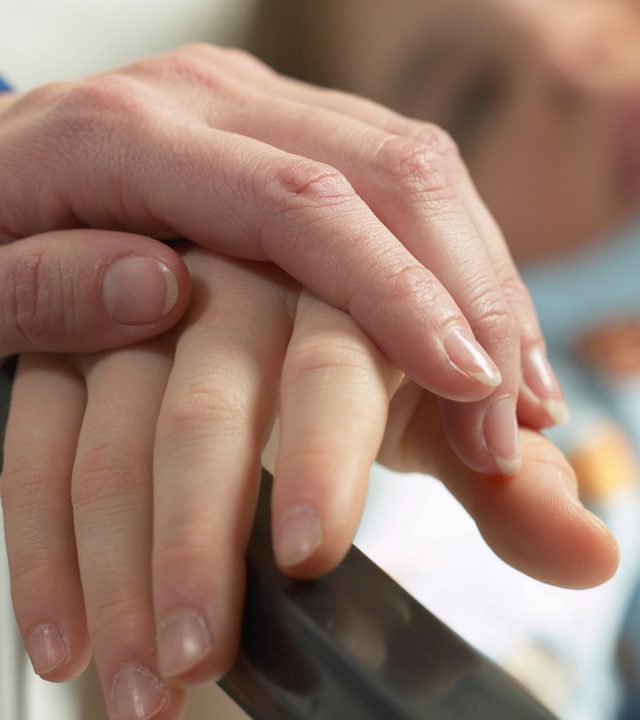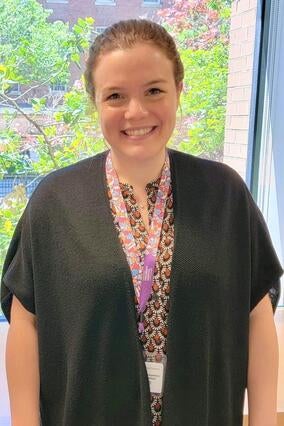
Aiding Kids' Mental Health: A Challenge and a Privilege
“It is both a challenge and a tremendous privilege to be a source of support to children and families going through some of the toughest moments of their lives. I am enormously proud of what we do as pediatric social workers.” - Lisa Hamilton, LCSW

Lisa Hamilton, LCSW, Senior Social Worker at the Sala Institute for Child & Family Centered Care at Hassenfeld Children’s Hospital at NYU Langone, was first introduced to the world of social work during an internship at an adult psychiatric unit the summer after her freshman year of college. “The social workers were dynamic and collaborative, and they were respected leaders on the care team,” she said. “They showed endless empathy and humanity for their patients, and it was clear that they loved their jobs.” One of these social workers took Lisa under her wing, and sparked her interest in the field.
After that summer she found herself hooked, returning to the unit any chance she had to gain more insight and experience. Although she eventually pivoted away from adult care to pediatrics, it made a huge impact on the trajectory of her career.
Since starting as a social worker in 2014, the field already changed drastically, partly due to the cultural shift in discussing mental health issues more transparently. Lisa still feels that the field has a long way to go.
“Quality community mental health care is rarely affordable or easy to access,” she said. “There can be so many barriers to getting good care, which we have to help our families navigate—these include (but are not limited to) insurance coverage, waiting lists, availability of clinicians who meet patients’ linguistic and cultural needs, and high therapist turnover in mental health clinics.”
But one way Lisa aids the mental health of her patients, regardless of external inequities, is through the gift of a wish. “Make-A-Wish is a tool that we can introduce to a child/family whenever we feel it is needed,” she said. “The wish process, from start to finish, brings levity, instills hope, and reminds the child and their family that they have a future to look forward to.”
Despite the many challenging conversations [removed comma here] she often has with families during their care, telling them that they’ve qualified for a wish is “just plain fun,” Lisa said.
“Children and teens suffer not just physically from their illness, but also socially and emotionally,” she said. “The act of thinking about and choosing their wish restores a sense of power and control for kids that is often lost while they go through treatment.”
Today, Lisa has referred many children to Make-A-Wish, but she was no stranger to our impact prior to becoming a referral source; she has also experienced the “wish effect” as a staff member and volunteer for our chapter.
Despite being involved in many capacities, she’s always felt that her favorite memories stem from volunteering. “I always loved meeting the kids, hearing the ‘why’ behind their wishes and learning about what inspires them,” she said.
It is through her combination of experiences that she has observed how the power of a wish can transcend beyond just the child themself. “Every family member suffers when a child is sick. I’ve had countless parents thank me through their tears when they tell me how moved they were by the experience,” said Lisa.
She continued, “Of course, they talk about what the wish gave to their child, but they are often surprised by how powerful the process is for them and their other children as well. Everyone feels joy and regains a sense of hope, control, and normalcy just as the wish child does.”
Like Lisa, you can impact a child and family’s mental health today. Learn how: wish.org/newyork/ways-help-us